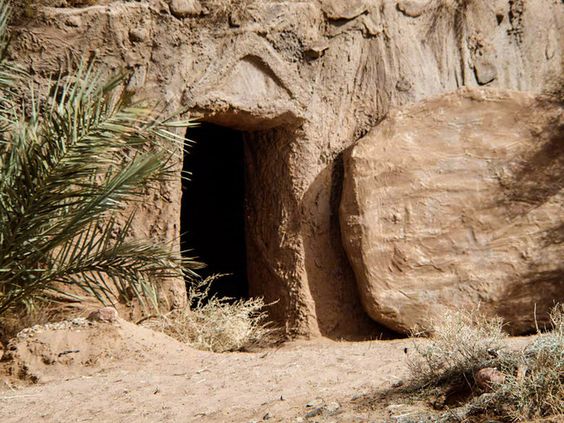
Wednesday – March 27, 2024
As the dogwoods begin to bud, flowers start to blossom and the pollen begins to circulate, we know it is spring in the south! Spring is a favorite time for many because it brings the promise of new life. For me, the past two springs have brought the weddings of my two sons. The natural beauty of springtime is the perfect backdrop for young love with all of its promise and wonder. Of course, love is more than just vows on a wedding day; it is a commitment to choose to love, unconditionally, “from this day forward”. And, as many of us know, these two young couples will spend the rest of their life learning the power of this type of love! “For better or worse, for richer or poorer…”
Love is in the air as we ponder Jesus’ final days before he goes to the cross. In fact, when we look at the story of Easter, the story of God’s redemption of mankind, love is always the theme!
Read Matthew 26:3-16, Mark 13-14, Luke 21:5 – 22:6; John 12:1-8
Holy Wednesday is referred to by some as spy Wednesday and by others as silent Wednesday. Of all of the days of the Holy week this one differs the most in the timeline. While we can’t be sure of all of the specifics that occurred on this day, What we do know is that tomorrow Jesus will celebrate the Passover with the disciples and the next day He will go to the cross. With this information, we can surmise a few probable events.
The name Spy Wednesday refers to speculation that this was the day that Judas confers with the chief priests and officers to turn Jesus over to them. We know from previous days’ events that these leaders have been seeking how to arrest Jesus. They are desperate to get rid of Him and this has all intensified since Jesus’ triumphal entry on Sunday. Remember on this day, Jesus allows the people to worship Him as the Messiah as He enters on the “foal of donkey” just as it was prophesied. He has been teaching every day, mesmerizing the people with His powerful words that reveal His authority. In fact, His teaching is so powerful that people are flocking to Him, “hanging on His every word”. Luke 21:37-38 tells us that “every day he was teaching in the temple, but at night he went out and lodged on the mount called Olivet. And early in the morning all the people came to him in the temple to hear him” which leads us to assume that He is continuing to teach on this day as well.
Taking the traditional interpretation of Spy Wednesday, we will take a look at the Jewish leaders plan aided by Judas to arrest Jesus. One of the interesting aspects of this event is the time; it is the time of the Feast of the Passover. Because of this, Jerusalem is packed with pilgrims who have come to the gather in the city for this all important festival. Many scholars estimate the numbers to be very high, 100’s of 1000’s. This fact alone raises the dramatic tension in the city. Large numbers of people made the potential for a riot much higher and not only were the Jewish leaders aware of the probable results of a public arrest, the Romans were also on high alert knowing that the large number of Jews could mean a possible uprising against them. One of the reasons we can assume that Rome was concerned is because of the presence of Pontius Pilate and Herod in the city. Typically, these two leaders ruled from Tiberius and Caesarea, but this week, they are here in Jerusalem for this Passover festival, presumably, to oversee the peace.
With the temple courts packed with enthusiastic pilgrims all seeking to hear the great teacher, the Jewish leaders recognize that arresting Jesus would undoubtedly provoke a riot. They are very aware that Jesus’ popularity will lead to a public protest that would subsequently draw the Romans into the mix. This is why when Judas comes to offer to expose Jesus privately for 30 pieces of silver, they jump on the chance. Judas, being one of the twelve, is the perfect traitor. He knows the habits of Jesus, he is privy to intimate details of His whereabouts at all times, and as John tells us, Judas “was a thief, and having charge of the moneybag he used to help himself to what was put into it” (John 12:6)
Despite his love of money, it’s difficult to understand why Judas would do this horrible act. He had walked with Jesus, seen Him do miracle after miracle, heard His mesmerizing teaching, experienced His supernatural compassion but at the end of the day, he never saw Jesus as anything more than a potential way out of Roman oppression; he wanted a “savior” but he had no interest in a Lord. The hard truth is that Judas didn’t really KNOW Jesus, not because he didn’t have the chance to, but rather because he didn’t want to! Since it was prophesied that Jesus would be betrayed, some might say that Judas didn’t really have a choice, but make no mistake, he had a choice. God is not a puppet master; He is a loving Father who allows us to choose to love Him. Judas had a choice and he chose to betray the only person who loved him with an everlasting love!
Sadly, this is the state of many who call themselves Christians. They don’t really KNOW Jesus, and this is obvious because of the way they live their lives. They might even choose Jesus as “savior” but trusting Him as Lord does not fit their agenda. Betrayal can happen in many ways. A couple of synonyms for the word betrayal are faithlessness and duplicity. Most of us would never ever see ourselves as a “betrayer” but is it possible that we struggle with faithfulness and loyalty to Christ. Do we always stand up for the truth no matter who we are around? Do we obey even if it means we are left out? Do we act one way when we are around our Christian friends and another way when we aren’t? Do we want Jesus to be our Savior but aren’t willing to give Him the total Lordship of our life? Make a decision to live as a faithful disciple. We always have a choice!
Let’s take a look at another person in Jesus’ life that made a different choice. We read about her in Matthew’s gospel:
Now when Jesus was at Bethany in the house of Simon the leper, a woman came up to him with an alabaster flask of very expensive ointment, and she poured it on his head as he reclined at table. And when the disciples saw it, they were indignant, saying, “Why this waste? For this could have been sold for a large sum and given to the poor.” But Jesus, aware of this, said to them, “Why do you trouble the woman? For she has done a beautiful thing to me. For you always have the poor with you, but you will not always have me. In pouring this ointment on my body, she has done it to prepare me for burial. Truly, I say to you, wherever this gospel is proclaimed in the whole world, what she has done will also be told in memory of her.” (Matthew 26:6-13)
The timing of this event is up for debate. Matthew places it after a mention of the Jewish leaders plotting to seize Jesus, but this quite possibly is a flashback to an occurrence that John places on Saturday before the triumphal entry. Regardless of when it happened in the week, this examples serves as a stark contrast to Judas’ betrayal!
Simon the leper was most likely a man whom Jesus had healed who had become a follower. The woman is Mary of Bethany whose brother was Lazarus. You may remember Mary as the one who chose to sit at Jesus’ feet and worship while her sister Martha ran around preparing food (Luke 10:38-42). When Mary anoints Jesus, it is clear that she has insight into who He is and why He has come. Kings and priests were anointed, so anointing Jesus is more than appropriate! In fact, her anointing His body was a sign of worship proving she saw Jesus as more than just a great teacher! Jesus calls her act a “beautiful thing” and praises her actions, but He acknowledges that this is not just a ceremonial anointing but rather a preparation for His burial! What is quite remarkable is that the disciples don’t get it! They are indignant that she would “waste” this precious perfume that could be used for the poor. This perfume is expensive, so her act cost her something. Yet, when you consider what Christ will be giving up in just two days, this perfume is nothing.
Mary is often referenced as the one who loved extravagantly; she wasn’t worried about what she was giving up, she chose to pour out this costly perfume on Him with complete abandonment and sacrifice. Although He won’t be buried for two more days, this woman’s uninhibited, unashamed act of love serves as a balm for Him as He approaches the day of ultimate suffering. She prepares Him for burial by loving Him greatly!
As we reflect on these final days of Jesus’ life on this earth, consider if you are willing to give up what is “costly” to you to truly worship Him! True love does require sacrifice, yet how many of us are willing to give it “all” to follow Christ? Consider what Jesus’ says in Luke 14.
Luke 14:26–33 (ESV): 26 “If anyone comes to me and does not hate his own father and mother and wife and children and brothers and sisters, yes, and even his own life, he cannot be my disciple. 27 Whoever does not bear his own cross and come after me cannot be my disciple. 28 For which of you, desiring to build a tower, does not first sit down and count the cost, whether he has enough to complete it? 29 Otherwise, when he has laid a foundation and is not able to finish, all who see it begin to mock him, 30 saying, ‘This man began to build and was not able to finish.’ 31 Or what king, going out to encounter another king in war, will not sit down first and deliberate whether he is able with ten thousand to meet him who comes against him with twenty thousand? 32 And if not, while the other is yet a great way off, he sends a delegation and asks for terms of peace. 33 So therefore, any one of you who does not renounce all that he has cannot be my disciple.
Jesus made it clear that if we want to follow Him, it will cost us something. Mary understood this, but the disciples didn’t get it yet! It will take them a few more days before it all makes sense. In many ways, Mary’s pouring out of the precious perfume is symbolic of the “pouring out” that Jesus will do because of His great love for us! Because of this extravagant, priceless act we will gain eternal freedom from sin and death, healing from the pain of this world, riches unimaginable, and everlasting peace! So, doesn’t He deserve our wholehearted worship this season and every season? As we think about Jesus during this blessed week, may we be like Mary; let us choose to love Him with the same sort of deep emotion and surrender! Consider letting go of your worries, fears, doubts, anxiety, busyness and worldly desires, and focus only on Him!
May we truly love Him extravagantly!









































